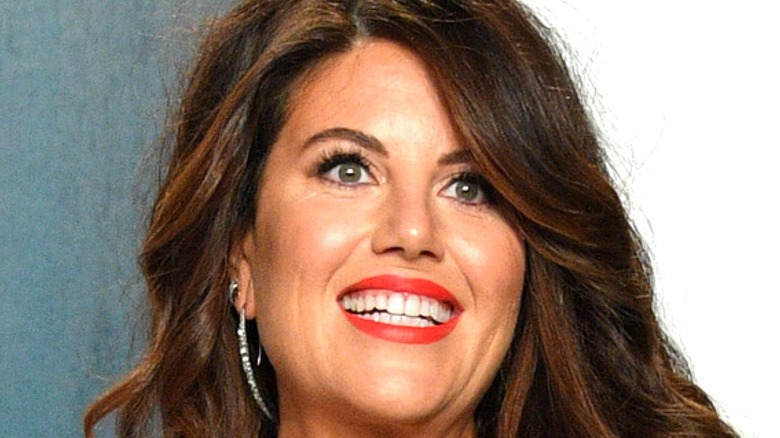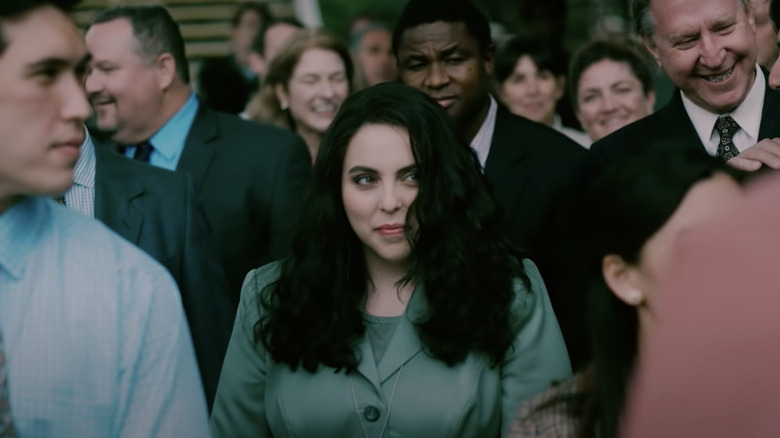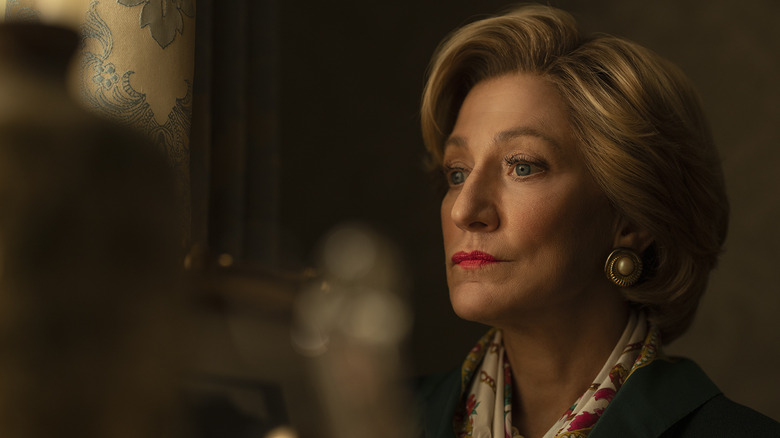How Monica Lewinsky Helped Make Impeachment: American Crime Story As Accurate As Possible
"American Crime Story" separates itself from its sister shows like "American Horror Story" and "American Horror Stories" in a really clear way — it's constantly tackling cases that feel ripped from the headlines.
In the show's first season, it tackled one of the most famous court show circuses of the last fifty years, the OJ Simpson trial. The show then followed that up by handling the horrifying assassination of legendary fashion designer Gianni Versace.
The latest season of 'American Crime Story" is tackling arguably one of the most high-profile national incidents in modern memory — the impeachment of former United States president Bill Clinton. This telling of events features Beanie Feldstein as Monica Lewinsky, Clive Owen as Bill Clinton, and a virtual who's-who of actors taking on some of the most famous figures involved with the impeachment.
Obviously, in dealing with an event that both had a long-reaching national impact and had an immeasurably negative impact on Monica Lewinsky herself, getting things right is incredibly Important — and part of telling the story honestly involved the "American Crime Story" team working with Monica Lewinsky herself. It turns out Lewinsky is the one who saw the importance in telling some of the hardest, most upsetting parts of this true story.
Why Lewinsky chose to work through her own trauma
"American Crime Story: Impeachment" is a story that sets out not to tell the story of the people in power, but the people without. A feature with The Hollywood Reporter homes in on two figures in particular: playwright Sarah Burgess (who took on lead writing duties for the project) and Lewinsky herself — a woman who, for many reasons, is afraid to see her story out in the limelight once again.
"I've never been more nervous to meet anyone in my entire life," Burgess revealed of her first contact with Lewinsky. For Burgess, one of the greatest anxieties she dealt with was the risk of retraumatizing a person who had already been deeply traumatized for decades.
However, while there was back and forth as Lewinsky consulted and helped produced the series, it was actually Lewinsky herself who would often push for some of the harder stories to be told.
"Listen, I would've loved to have been really selfish and said, 'That's great that you guys think we don't have to show that, fantastic,' but I'm incredibly experienced in understanding how people see this story," Lewinsky explained while talking about power over the scripts. "So, ultimately, I felt two things: One was that I shouldn't get a pass because I'm a producer; and two, that it was unfair to the team and to the project because it would leave everybody vulnerable."
The one impeachment story Lewinsky stayed out of
It's interesting to see specifically how Lewinsky would alter the way her own story would be told — she sees herself as an open person once trust is there. "If I feel comfortable with people, I have no problem talking about anything," Lewinsky said of the Zoom calls she took discussing scripts. "I also knew that the deeper I dug, the more valuable it was."
Lewinsky ultimately provided the kind of personal context for this story that virtually no one else could have. She pushed for a greater degree of kindness when dealing with Paula Jones, for example, who filed suit against Bill Clinton for sexual harassment and also dealt with an incredibly negative backlash from the American public.
The one thing Lewinsky did stay out of, though was scenes depicting the relationship between Bill and Hillary Clinton. There are, "myriad, obvious reasons," Lewinsky left that aspect of the story alone she says.
"American Crime Story: Impeachment" debuts on September 7.


